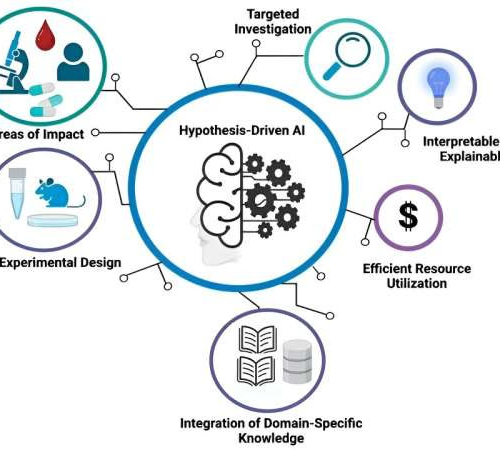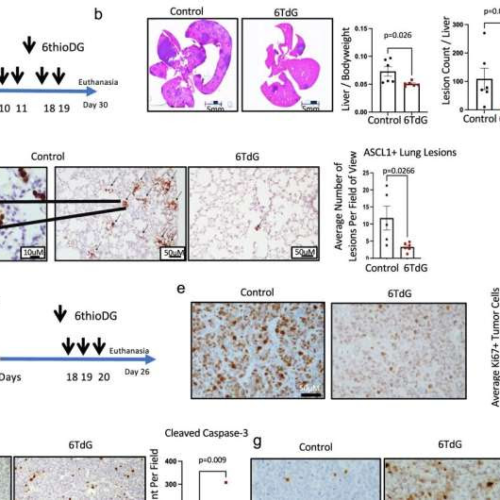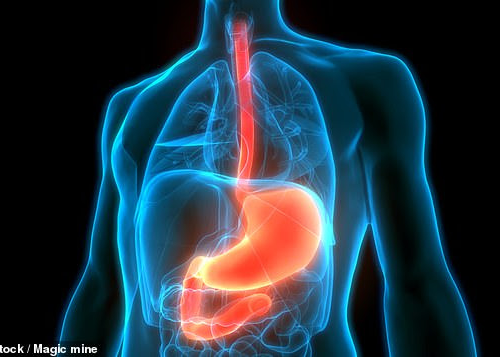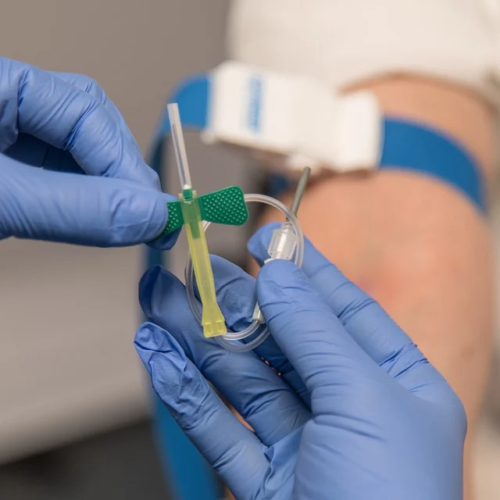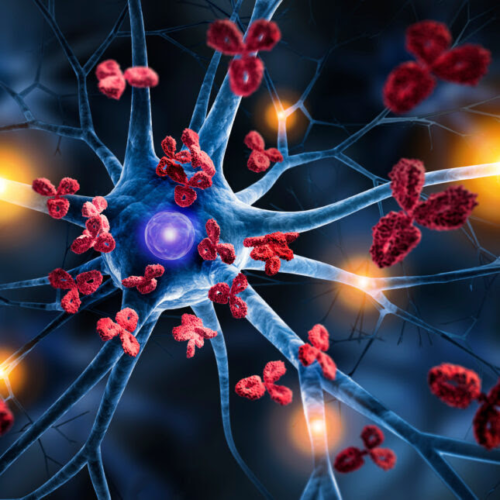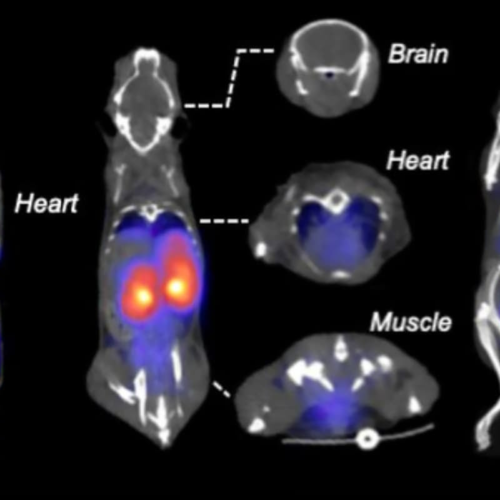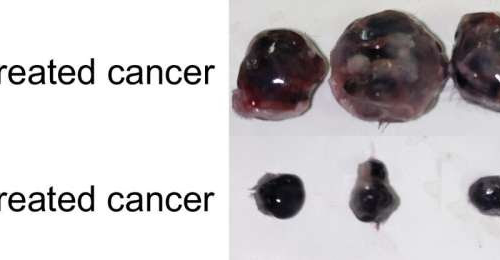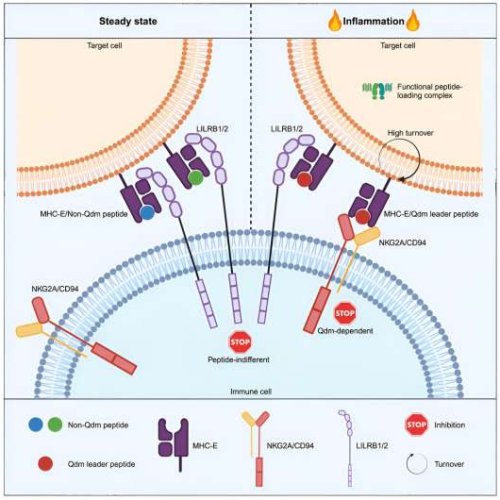by Colette Gallagher, Mayo Clinic Credit: Mayo ClinicMayo Clinic researchers recently invented a new class of artificial intelligence (AI) algorithms called hypothesis-driven AI that are a significant departure from traditional AI models which learn solely from data. In a review published in Cancers, the researchers note that this emerging class of AI offers an innovative...
Tag: <span>Cancer</span>
Lung cancer treatment shows promise in tumor models
by UT Southwestern Medical Center 6TdG induces double stranded breaks and apoptosis in mouse tumors. Credit: Nature Communications (2024). DOI: 10.1038/s41467-024-44861-8A molecule has demonstrated its ability to kill tumor cells and incite an immune response in preclinical models of small cell lung cancer (SCLC), according to UT Southwestern Medical Center researchers. The findings, published in...
Study finds calcium, vitamin D supplements may reduce cancer mortality in long term
by Elana Gotkine For postmenopausal women, calcium and vitamin D (CaD) supplements may reduce cancer mortality and increase cardiovascular disease (CVD) mortality after more than 20 years of follow-up, according to a study published online March 12 in the Annals of Internal Medicine. Cynthia A. Thomson, Ph.D., R.D., from the Mel and Enid Zuckerman College...
Protein ‘brake’ could help develop new cancer treatments
by Stanford University Credit: Pixabay/CC0 Public DomainSome cancerous tumors hijack proteins that act as “brakes” on our immune system and use them to form a sort of shield against immune recognition. Immunotherapy treatments have been created that turn off these “brakes” and allow our body to attack foreign-looking cancer cells. To further advance such treatments,...
New experimental pill that spots tumors YEARS before they develop could prevent ‘death sentence’ form of cancer
Patients diagnosed with esophageal cancer have low chances of survivalBut a test could detect signs of the cancer before it develops allowing treatment A vitamin pill-sized device could revolutionize the battle against a deadly throat cancer by diagnosing patients before they develop the disease. Patients diagnosed with esophageal cancer have just a 50 percent chance...
‘Switchable’ Bispecific Antibodies Pave Way for Safer Cancer Treatment
Immunotherapy utilizing an FDA-approved drug has enabled Penn researchers to develop a novel switchable bispecific T cell engager that mitigates negative outcomes of immunotherapy.Taking a blood sample – illustrative photo. Image credit: Annett Klingner via Pixabay, free license In the ever-evolving battle against cancer, immunotherapy presents a turning point. It began with harnessing the body’s...
Small study adds to growing hope CAR-T cell therapy could revolutionize autoimmune disease treatment
By Theresa Gaffney ADOBEPeople with autoimmune disorders don’t usually get to talk about a cure. There’s symptom management, hopeful periods of remission often followed by relapses, but rarely a lasting fix for the way their immune system attacks healthy cells. If the immune system is an army, then those with conditions like lupus, multiple sclerosis, or...
Radioactive ‘fruit sugar’ lights up cancer and inflammation
By Paul McClure Radioactive fructose illuminated cancer cells and brain and heart inflammation on a PET scanKirby et al./Journal of Nuclear Medicine A radioactive form of fructose, a natural sugar found in fruit, given to mice lit up areas of cancer and inflammation on a diagnostic medical scan. The researchers say the approach makes diseases easier...
New technology makes cancer easier for immune system to find and destroy
by Hokkaido University Compared with untreated cancer, the TRED-I system significantly reduced cancer size in mice models. Credit: Proceedings of the National Academy of Sciences (2024). DOI: 10.1073/pnas.2310821121A new technology to increase visibility of cancer cells to the immune system using CRISPR has been developed, and could lead to a new way to treat cancer. Major...
Why cancer immunotherapies don’t work for everyone
by Katherine Egan Bennett, University of Texas at Arlington Credit: Cell Reports (2023). DOI: 10.1016/j.celrep.2023.113516A multi-institutional study co-authored by University of Texas at Arlington scientists uncovered a mechanism by which cancer cells prevent the immune system from activating and attacking the cancerous invaders. The study, published in Cell Reports, sheds light on why immunotherapy treatments don’t...

